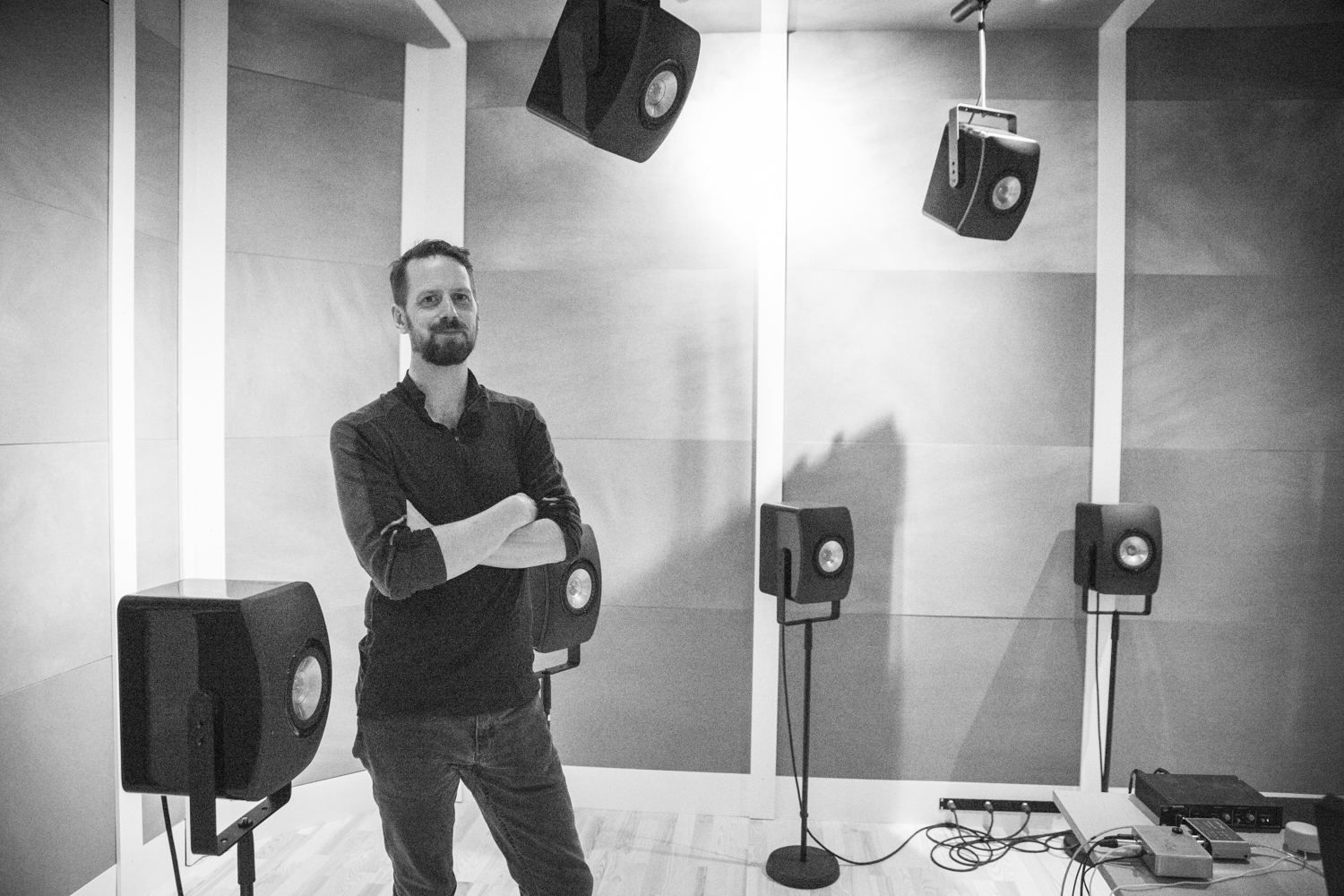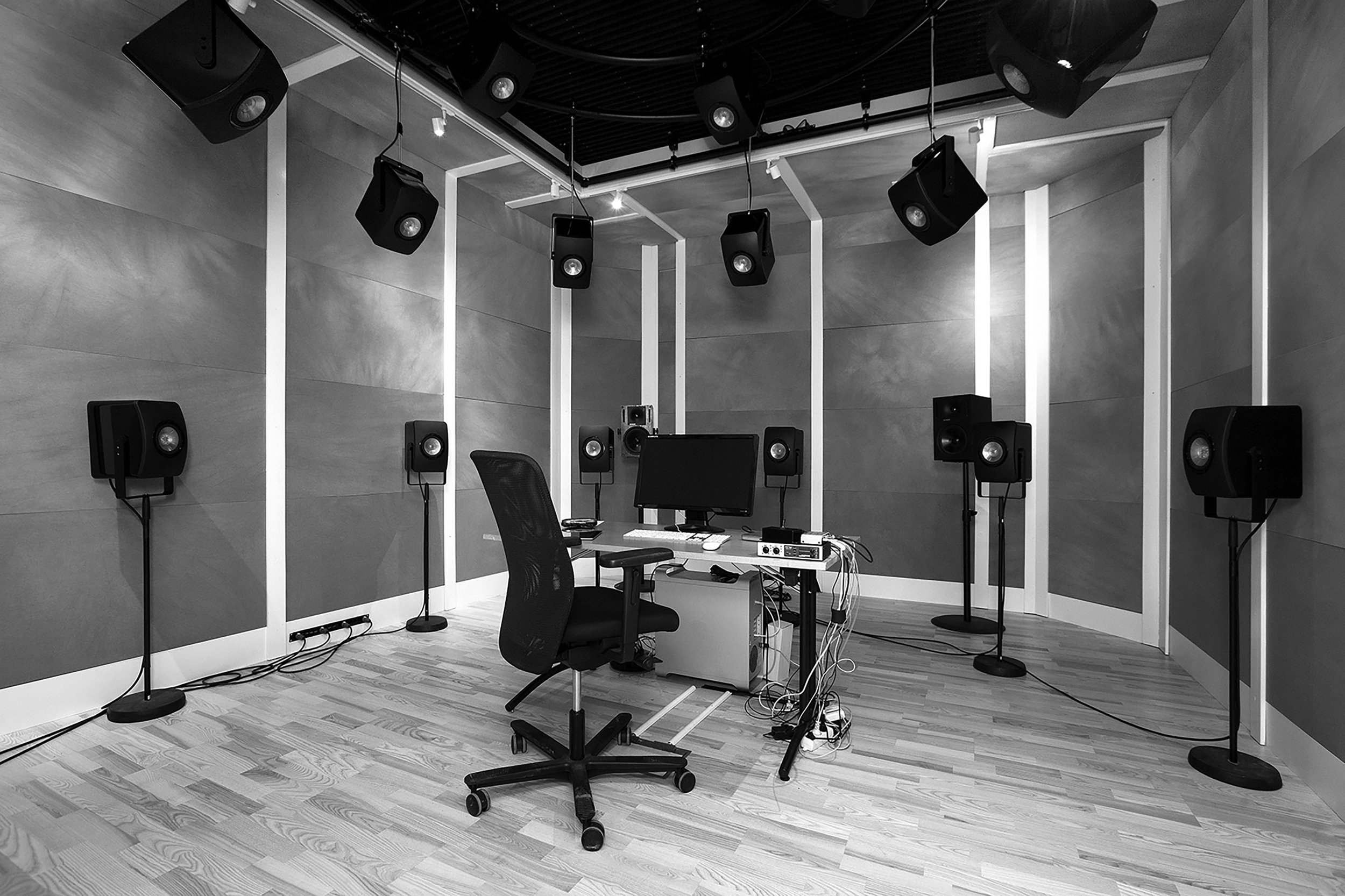Notto J. W. Thelle "Notam - Past, Present, Future"
Notto J. W. Thelle is a Norwegian musician and composer. He gained his Master’s degree in musicology at the University of Oslo, and from 2012 until 2017 he has worked as the director of Notam (Norwegian Center for Technology in Music and the Arts).
The following is a transcript from the conversation between Notto J. W. Thelle and Stahl Stenslie and Zane Cerpina in May 2017, Oslo.
EE: We know you best as the director of Notam, but can you tell us more about your background before that?
Notto J. W. Thelle (NT): I am a musician and composer. Originally my background was in rock music. In the 1990s I was a band musician, I moved to London and played music there for six years. It was a great experience for a while, but I gradually became disillusioned by the music scene I was in, and the whole philosophy behind it. I was also tired of the hand-to-mouth situation as a musician. At that point I had never formally studied music, besides having a guitar teacher during the early years. I was self-taught in everything I did, including the music production.
“I gradually became disillusioned by the music scene I was in, and the whole philosophy behind it”
EE: From being a full time band musician, how did you arrive at Notam?
NT: After my time in London I made a snap-decision that I want to do things formally, so I applied for studies and got in the Department of Music at the University of Oslo. At that point I had to teach myself how to read notes! After that I also did my Master’s. At the same time I got more and more interested in the technological part of music. I took any subject that had anything to do with the music technology, acoustics, sound production and sound programing, and I also took some courses in informatics. I just went all in. In 2008 Notam needed someone to write the annual report, and I was suggested to Jøran Rudi by my supervisor at the University. This is how my time at Notam began. Soon after that I was offered a position there, working with communications. While I was doing my Master’s, my position at Notam expanded. A lot of coincidences led me to becoming the director in 2012. At the same time Notam relocated (to Sagene in Oslo). Many important decisions had to be made in a completely chaotic situation. My period at Notam has mainly been about stabilizing the economy, creating a new environment and building the new ambisonics studio. Being director here during this period has been like a rite of passage for Notam, crossing from one organizational form to another. And now when my term is running out, I think it is time for somebody else to take over.
“The diversification is probably the only one main tendency”
EE: Could you describe the major, emerging tendencies in sound art these days?
NT: I have a feeling that if I do describe any major, emerging tendencies, something completely different will be true half a year from now. I think the diversification is probably the only one main tendency. Sound as art is making an impact everywhere. For instance, sound is becoming more widely accepted as a physical, sculptural phenomenon, manifested as a process propagating through materials or liquids. This can be experienced visually or through other senses than purely aural. In more visual arts contexts, sound tends to have a thematic function that serves a spatially oriented and object-based practice. The sense of sound as something unfolding in time becomes less important in a such settings. This is not new, but I think it’s quite safe to say that sound as a “conceptual articulator” in multimedia contexts is in vogue at the moment. If that makes any sense.
“Sound as a “conceptual articulator” in multimedia contexts is in vogue at the moment”
EE: Which experimental artists would you put forward as the most interesting right now?
NT: An “experimental artist” is a very wide term. In terms of revitalising the experimental art scene, I’d like to name a few. Koka Nikoladze (www.nikoladze.eu) - for him, anything can be an instrument for artistic expression, especially objects you least expect. Tine Surel Lange (www.tinesurel.com)- her audiovisual works and her newfound flair for ambisonics composition. Marieke Verbiesen (www.marieke.nu) seems to be at a particularly prolific point in her career, definitely “one to watch”. Verdensteatret - collaborative, experimental and interdisciplinary art at its finest. And Hege Tapio’s vigorous work for the bio arts field in Norway needs to be commended. Look to i/o/lab! (www.iolab.no)
EE: What are the most important issues in the experimental art scene in Norway?
NT: The scene needs to be seen as a scene! From a political viewpoint, anything outside of established traditions seems unworthy of attention. The timing is crucial for connecting the dots between many extremely exciting, but fragmented initiatives all over the country and giving them the impression of being all parts of one force. This is needed to make the experimental art scene prosper. PNEK and its nodes are instrumental to make such a concerted effort happen.
“The scene needs to be seen as a scene!”
EE: You have headed the most profiled art sound institution in Norway for many years, what’s next?
NT: Me. I’m next! Heading Notam has been all about helping other people, and it has been a life-changer for me. I’m psyched by all the positive energy and great projects I’ve seen realised over the years, and it will be exciting to see how I can channel this to my own projects. I have no specific plans for the rest of 2017 so far, so we’ll see what happens. Some freelancing for sure. Bills need to be payed. Next year, I may be starting a Ph.D. It’s all quite open at the moment, and I find that profoundly liberating right now.
“Just realizing you are not the center of the universe”
EE: How do you think your time at Notam has influenced your personal artistic practice?
NT: The most important effect it has had on me, is the humbling effect - just realizing you are not the center of the universe. That paradoxically has given me more confidence. It sounds strange, but before I had less confidence and I was more interested in myself. Now I am more interested in the work of other people. At the same time I have more confidence. Another thing about working here is that I haven’t done anything creative for five years, but I’ve had lots of new impulses. I have no idea of how it is going to come out, but I hope it is going to be something completely different. It is quite exciting to have a clean slate.
EE: How would you like to see Notam grow from now on?
NT: Recently I have been thinking about this a lot. I think that with Notam, but also with the whole PNEK network, the time is ripe for restructuring. When you work on the inside it seems to be working quite well, but from the outside it can look quite confusing. There has to be some strategy of making Notam appear as something easy to grasp from the outside as well.









